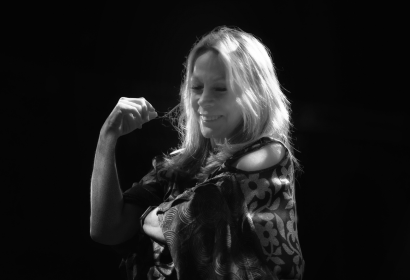Named the “premiere song-stylist and songwriter of her generation” by The New Yorker, and “The Duchess of Coolsville” by Time magazine, Jones released her Grammy-nominated album Pieces of Treasure in 2023, a reunion with Russ Titelman, who produced her first two records. Jones’ celebrated memoir Last Chance Texaco was named Book of the Year by MOJO and a Best Book of the Year at Pitchfork and NPR.
The Independent writes, “There has always been something defiant about Rickie Lee Jones . . . a voice from a dream, elusive yet familiar, transcendent, a messenger from another place.”
Video: “Coolsville Trilogy”
Note: For some concerts, the window behind the stage may need to be covered for acoustical purposes. We do not always know which artists will need the window closed, but at a certain level of amplification, it is necessary.












